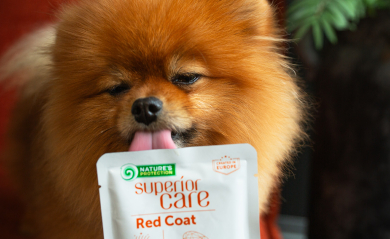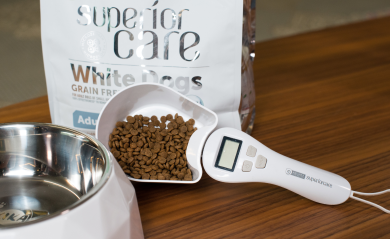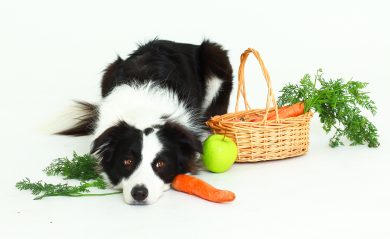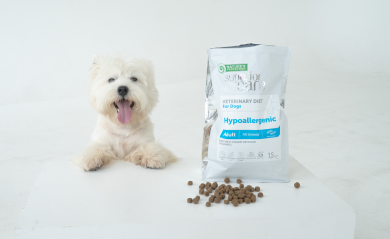Dog food with insect proteins. Is it beneficial for the dog's health or is ir just a trend?
The United Nations has made a projection that the global population, presently at 7.6 billion, will reach 9.8 billion by 2050. This growth will result in a substantial increase in the demand for protein, necessitating an annual farm production of primary proteins to rise from 525 million tons to 790 million tons to fulfil the demand. This concern, regarding feeding the burgeoning global population, has generated interest among government agencies, scientists, and food producers to find alternative protein sources such as plants and insects.
It is possible that you have encountered articles regarding the use of insects in pet food and are curious about whether it is merely a transient trend. However, this is a part of a more extensive and intricate issue, which this article will delve into. Our objective is to provide a concise overview of the current situation and future expectations. The use of insect protein as an alternative is a promising starting point to address the shortage of meat protein.
You may be inquisitive about whether insect protein is beneficial for dogs and if it can supplant traditional protein sources such as beef, poultry, or fish. The response is affirmative. Insect protein is a highly nutritious and effortlessly digestible form of protein that offers numerous health benefits to dogs. This blog will expound on why insect protein is increasingly becoming popular in pet foods and why it is an excellent choice for our furry companions.
The Advantages of Insect Farming
One of the main drivers behind the push for insect protein production is the need for more sustainable protein sources in the future. Meat production necessitates a considerable amount of land and water resources and is a significant source of carbon emissions. As pet food accounts for a quarter of the world's meat production, efforts to find alternative protein sources are increasingly focused on the pet food supply chain.
Insect farming is much more efficient, sustainable, and requires less land than traditional livestock farming. Insects have a short time-to-maturity and high reproduction rates, enabling high yields of protein production. Although cattle may have twice as much protein per pound as crickets, cattle require 12 times the amount of feed to produce the same amount of protein. The multipliers for sheep, chicken, and swine are 4, 2, and 2, respectively. According to the Food and Agriculture Organization (FAO) of the United Nations, there are over 20,000 insect farmers globally, and more than 1,900 species of insects are being used as food.
The Advantages of Insect Protein
Environmental Sustainability
Insects are an environmentally friendly option as they require less land, water, and food compared to traditional protein sources. They also produce fewer greenhouse gas emissions and generate less waste than other animal-based protein sources. Black Soldier Fly Larvae (BSFL) is the most used insect in pet food production globally. This insect is an excellent complement to traditional meat-based protein sources, making it a valuable ingredient in balanced pet food.
BSFL (Black Soldier Fly Larvae) can consume and absorb food and water from fruits, grains, and vegetables that would otherwise go to waste. The environmental benefits of using BSFL in pet food production are significant when compared to chicken. Chicken production necessitates approximately 13 times more land, 7 times more water, 5.5 times more CO2 emissions, and 1.5 times more energy than Black Soldier Fly Larvae production.
The nutritional benefits of insect protein are noteworthy, as insects are an excellent source of vitamins and minerals that are easily absorbed by the body. Moreover, insects are high in antioxidants, which protect the body from cell damage caused by free radicals. They are also a great source of essential fatty acids, with optimal Omega 3:6 balance. In addition, the chitin found in the exoskeleton of insects is a prebiotic fibre that serves as a food source for the "good" bacteria in the human or pet intestine, making it a valuable source of nutrition.
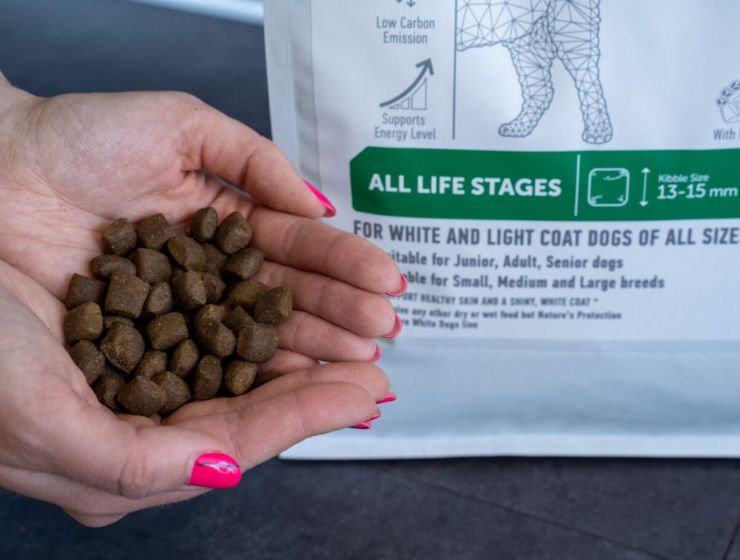
When producing Nature’s Protection Superior Care food with insect protein, dried Black Soldier Fly Larvae (BSFL) meal is used, which contains B vitamins, iron, copper, magnesium, and zinc. BSFL protein is also an excellent source of high-quality, easily digestible protein, which is crucial for building and repairing muscle tissue, supporting the immune system, and maintaining overall health.
Insect protein is hypoallergenic, making it an excellent option for dogs with food allergies or sensitivities to traditional protein sources like beef, chicken, and pork. This hypoallergenic protein is vital not only for dogs with sensitive digestive systems but also when fighting brown tearstains, which are often caused by food allergies. For this reason, only hypoallergenic ingredients, including insect protein, is use in the production in our Nature’s Protection Superior Care dry food and treats.
In conclusion, insect protein is a highly nutritious and sustainable form of protein that is an excellent choice for pet food. The numerous benefits of insect protein, ranging from environmental sustainability to nutritional advantages, make it an increasingly popular option for pet food manufacturers. If you are searching for a high quality, allergen-free form of protein for your furry friend, we recommend checking out Nature’s Protection Superior Care food, which has an insect base. Your dog will undoubtedly appreciate it!

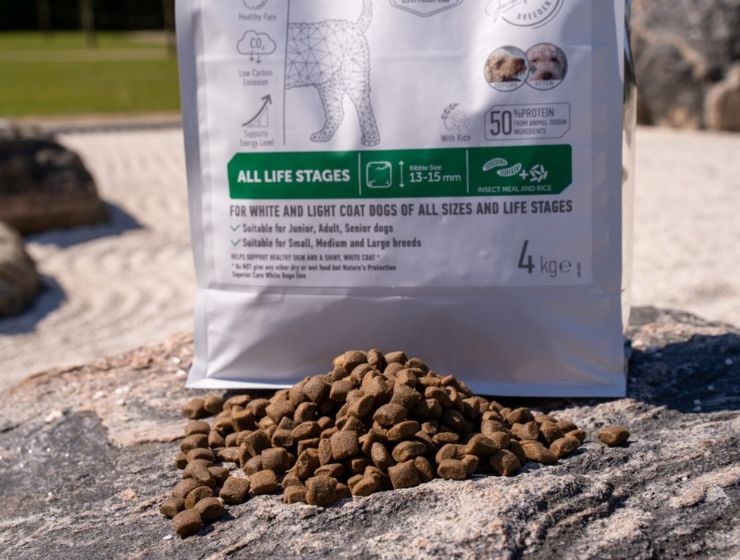
 August 02, 2023
August 02, 2023
 0 comments
0 comments




 March 26, 2025
March 26, 2025
